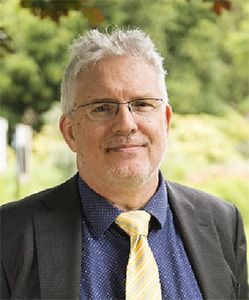Scientific uncertainty: untameable monster, dragon of inaction, or source of knowledge?
Date:
17 Feb 2016 1:00 pm — 2:00 pm
Speaker(s): Professor Stephan Lewandowsky
Venue: Worsley seminar room 8.49n, University of Leeds
Public seminar hosted by the Centre for Decision Research jointly with the Priestley International Centre for Climate, the Sustainability Research Institute and the Centre for Climate Change Economics and Policy.
Uncertainty forms an integral part of science, and uncertainty is intrinsic to many global risks that dynamically unfold over time, from “peak oil” to genetically modified foods to climate change. Uncertainty is often cited in connection with political arguments against corrective action. Using climate change as a case study, Professor Stephan Lewandowsky reports an ordinal analysis (i.e., statements of the form “greater than”) of uncertainty within the climate system. This analysis is not sensitive to people’s cultural cognition or subjective risk perceptions and reveals that greater uncertainty (i.e., “greater than expected”) provides greater impetus for mitigative action. This normative result stands in contrast to people’s tendency to view uncertainty as a stimulus for “wishful thinking”, and hence a reduced impetus for mitigative action. Stephan examines the interplay between human cognition, physical reality, and policy options within the landscape of various facets of uncertainty.
 About the speaker: Professor Stephan Lewandowsky is a cognitive scientist at the University of Bristol. He was an Australian Professorial Fellow from 2007 to 2012, and was awarded a Discovery Outstanding Researcher Award from the Australian Research Council in 2011. He held a Revesz Visiting Professorship at the University of Amsterdam in 2012, and received a Wolfson Research Merit Award from the Royal Society upon moving to the UK in 2013. His research examines people’s memory, decision making, and knowledge structures, with a particular emphasis on how people update information in memory. His most recent research interests examine the potential conflict between human cognition and the physics of the global climate, which has led him into research in climate science and climate modeling. He has published over 140 scholarly articles, chapters, and books, including numerous papers on how people respond to corrections of misinformation and what variables determine people’s acceptance of scientific findings. (See www.cogsciwa.com for a complete list of scientific publications.)
About the speaker: Professor Stephan Lewandowsky is a cognitive scientist at the University of Bristol. He was an Australian Professorial Fellow from 2007 to 2012, and was awarded a Discovery Outstanding Researcher Award from the Australian Research Council in 2011. He held a Revesz Visiting Professorship at the University of Amsterdam in 2012, and received a Wolfson Research Merit Award from the Royal Society upon moving to the UK in 2013. His research examines people’s memory, decision making, and knowledge structures, with a particular emphasis on how people update information in memory. His most recent research interests examine the potential conflict between human cognition and the physics of the global climate, which has led him into research in climate science and climate modeling. He has published over 140 scholarly articles, chapters, and books, including numerous papers on how people respond to corrections of misinformation and what variables determine people’s acceptance of scientific findings. (See www.cogsciwa.com for a complete list of scientific publications.)
Professor Lewandowsky is an award-winning teacher and was Associate Editor of the Journal of Experimental Psychology: Learning, Memory, and Cognition from 2006-2008. His research has been funded continuously since 1990 by public agencies in 5 countries. He has also contributed nearly 50 opinion pieces to the global media on issues related to climate change “skepticism” and the coverage of science in the media. He is currently serving as Digital Content Editor for the Psychonomic Society and blogs routinely on cognitive research at www.psychonomic.org.
Directions to the room: From Medical coffee bar area, turn right, go up one flight of stairs, take corridor ahead to the left, go through the first set of double doors on the left, go through doors a little further down on the left into room 8.49n, go through the door into the Fourman and D. Wood cluster entrance, room 8.49n is straight ahead.
Save this event to your calendar:
- add to Google Calendar
- add to Yahoo Calendar
- add to Outlook.com Calendar
or download for iCal / Outlook


